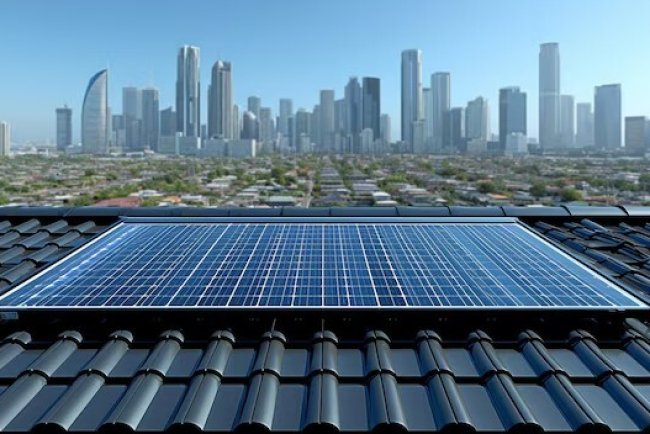Air Pollution and Climate Change Threaten India’s Solar Power Potential
A study by IIT Delhi projects a decline of 600-800 gigawatt-hours in India's solar power generation by mid-century due to air pollution and climate change. The research highlights the impact of reduced solar radiation, rising temperatures, and efficiency losses in solar panels, calling for urgent climate action and technological innovation to sustain India's solar potential.

India's solar power generation capacity is expected to decline by 600-800 gigawatt-hours by the middle of the century due to the impacts of air pollution and climate change, according to a report by Indian Institute of Technology (IIT) Delhi researchers. The report highlights some concerns with regards to the operational efficiency of solar power plants in India's north, west, and south, which contain the largest number of operational solar parks. It cites the importance of adopting timely actions for the decline in both climate change and air pollution so as to build an assured and durable future for the energy sector, which relies predominantly on solar sources.
Decreasing Solar Radiation and Increasing Temperatures:-
Even though it is endowed with nearly 300 clear-sky days per year, India has been experiencing a steady decline of solar radiation, a phenomenon known as "dimming." Airborne pollutants scatter and absorb sunlight, thus reducing the quantity of solar radiation that reaches the earth's surface. The decline in radiation is likely to reduce the efficiency of photovoltaic (PV) systems, leading to lower solar power generation.
The study, which was released in the journal Environmental Research Letters, used global climate models to project the solar power potential of 2041-2050 for India under two scenarios. One used moderate climate change and air pollution assumptions, while the other used weak climate action and strict air pollution controls. The findings indicate that the countrywide power generation potential from solar energy could decrease by two to four percent from the 1985-2014 level.
Impact on Solar Panel Efficiency and Energy Generation:-
Increase in temperatures of solar cells is one of the major issues of concern raised by the study. Solar cell temperature is expected to increase between 1.5-2°C, and thus lead to loss of efficiency. Solar-rich areas are projected by the study to experience an additional 18 days annually of de-rating efficiency as well as decrease the reliability of solar power generation.
Based on the data for the years 2023-24, the study estimated the solar power generation loss potential ranging from 600 gigawatt-hours of a moderately effective air pollution control and climate action scenario to 840 gigawatt-hours in weak climate action with strict air pollution control. With growing interest in renewable energy sources, these losses are bound to pose serious challenges to India's climate and energy security commitments.
The Call for Policy Initiatives and Technological Innovation:-
To meet the anticipated reduction in solar energy potential, the research highlights the importance of stringent policy interventions towards air pollution control and climate action. Emission mitigation by the industry, automobiles, and agricultural fires is critical in order to improve air quality and minimize the dimming impact on solar radiation. Furthermore, attempting to reduce greenhouse gas emissions and enforce stricter climate policy will be crucial in reducing the long-term effects of increased temperatures on solar energy efficiency.
The researchers also point to the need for technological advancement in solar cells and photovoltaic materials to improve efficiency at high temperatures. It is feasible to create heat-resistant and pollution-resistant solar panels that can offset some of the loss caused by unfavorable environmental conditions.
The Role of Renewable Energy Transition:-
As India is increasing its renewable energy capacity, the shift towards cleaner sources of energy is still a priority area in mitigating air pollution and climate change effects. The study emphasizes that an accelerated transition to renewable energy, such as wind and hydro power, and solar energy, is needed to create a sustainable and resilient energy infrastructure.
While India has registered significant growth in terms of increasing its installed solar capacity, the risks of climate change and pollution of the environment call for aggressive interventions to ensure that solar energy becomes sustainable in the long term. Increased investments in policies, research, and innovation, as well as the implementation of cleaner sources of energy, will be critical in ensuring the future of India's solar power opportunities in the coming decades.
Source: Environmental Research Letters
What's Your Reaction?

















